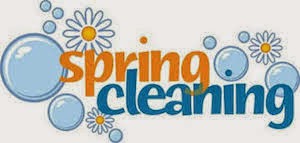Ever wonder why you just can’t get along with
Bob in accounting? Or why you and Shelly from marketing work so well together? Or
why you prefer the back room to the show room? Of course, it’s your
personality. We are all naturally inclined one way or the other, and our
personalities are a crucial part of how well we perform at work and engage with
others.
Knowing your personality type can help you at
every stage of your career, from choosing a field to choosing a firm, from figuring
out how to get along with coworkers to leading a team.
 |
| Know yourself, and you will thrive. |
If you know yourself and how you will
react and interact with others, you will be able to make better choices when it comes to choosing the type of career or office
environment in which you will thrive. The more you know yourself, the more successful you will be.
And there is no better way to know yourself
than with a personality assessment like the Myers-Briggs Type Indicator (MBTI),
the gold standard in the industry.
Are you an ENFP? An ISTJ?
Myers-Briggs is an assessment of your
personality preferences. It’s not a cut-and-dried diagnosis. Rather, it is an
interpretation of how you prefer to interact, receive information, make
decisions, and engage with others and the world around you.
 |
| MBTI, the gold standard in personality tests. |
There are four areas of inquiry, with a total
of 16 distinctive personality types that can emerge. Again, these are
preferences. We all share some of the same traits across the spectrum; what the
MBTI does is gauge your overall preferences.
From the Myers-Briggs website, the four areas
are:
1. Favorite world: Do you
prefer to focus on the outer world (Extroversion, or E), or the inner world (Introversion,
or I)? This is how you derive your energy—do you get it from the outer world (E)
or by being alone (I)?
2. Information: Do
you prefer to focus on the basic information you take in (Sensing, or S) or do
you prefer to interpret and add meaning (Intuition, or N)?
3. Decisions: When
making decisions, do you prefer to first look at logic and consistency (Thinking,
or T) or first look at the people and special circumstances (Feeling, or F)?
4. Structure: In dealing with the outside world, do
you prefer to get things decided and keep them structured (Judging, or J), or
do you prefer to stay open to new information and options (Perceiving, or P)?
Based on how you answer a series of questions
based on the above areas, your personality type might emerge as an ENFP, an
INTJ, or any combination of the above.
Why It Matters
Again, knowing your personality type can
profoundly influence how well you do in the world—personally, socially, and
professionally. If you know you are
an introvert, you might want to choose professions or office environments where
people are encouraged to work independently. If you are an extrovert you might
want to choose a field where engaging with others is paramount. The Myers-Briggs website says it best:
“Work environments influence how comfortable you are at your job. Someone with a preference for Introversion, for example, who is required to do a lot of detail work or think through a problem, may find it disruptive to be in an environment that is too loud or where a lot of interaction is required. When you know this about yourself, you can make arrangements to do your work in a more suitable location or at a time when there is less activity and interference.”
Knowing your personality preferences can be the difference between success and a lot of frustration.
Know Thyself!
MBTI can only be administered by certified professionals,
and I encourage everyone who can to take an assessment. Ask your HR department if they offer it or find a consultant to administer it. Short of that, there are lots of personality tests and MBTI-type quizzes out there, which can give you a good sense of your personality
preferences. Try these:
Knowledge is power. Know yourself, and you can make better choices
and interact with the world in the way that suits you best. It’s a smart career
move. Good luck!
~~~
For more information on Careerstone or
to schedule an MBTI Assessment,
please visit our website: Careerstone Group
please visit our website: Careerstone Group








